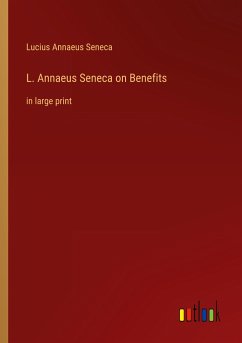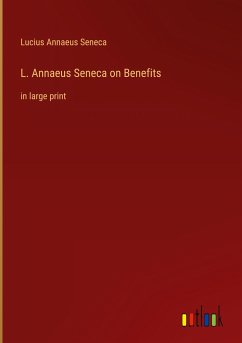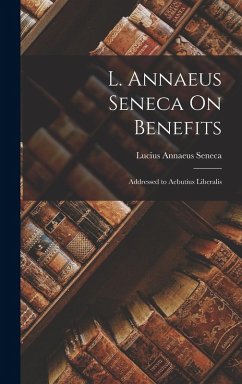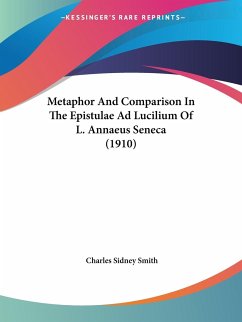
L. ANNAEUS SENECA, ON BENEFITS
Versandkostenfrei!
Versandfertig in 1-2 Wochen
24,99 €
inkl. MwSt.

PAYBACK Punkte
0 °P sammeln!
Luke Annaeus Seneca's "On Benefits" is a deep and philosophical study the concept of giving and getting benefits from a Stoic point of view. Seneca turned into a well-known Roman logician, baby-kisser, and creator who lived within the first century AD. In his writings, he talks approximately the complex nature of relationships and the moral problems that arise when humans provide and obtain gifts. Along with the reasons for giving and the responsibilities that come with getting advantages, Seneca talks about the character of gratitude on this big painting. He talks approximately the ethical an...
Luke Annaeus Seneca's "On Benefits" is a deep and philosophical study the concept of giving and getting benefits from a Stoic point of view. Seneca turned into a well-known Roman logician, baby-kisser, and creator who lived within the first century AD. In his writings, he talks approximately the complex nature of relationships and the moral problems that arise when humans provide and obtain gifts. Along with the reasons for giving and the responsibilities that come with getting advantages, Seneca talks about the character of gratitude on this big painting. He talks approximately the ethical and mental elements of generosity and makes the case that actual distinctive feature isn't always just the act of giving, however additionally the thoughts and plans at the back of it. Seneca's philosophy writings on distinctive feature and reciprocity can assist human beings discern out the way to behave in social situations. People are instructed to broaden an actual experience of thank you and to think about the ethical issues that arise once they deliver and receive. "On Benefits" is an eternal photo that offers us treasured insights into how humans suppose and act morally. Seneca's effective and thought-frightening take a look at of kindness, gratitude, and ethical reciprocity is still applicable today. This painting is an important addition to Stoic philosophy and a source of setting up with understanding for folks who are considering how complex human relationships can be.












